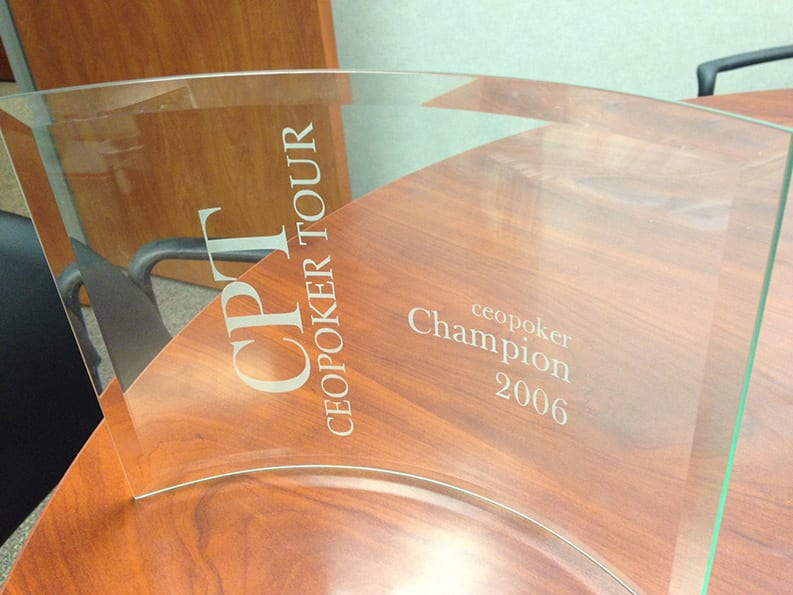What can poker teach us about business? A lot, I have found. People are often so focused on their own game that they don’t consider the motivations, needs, and assets of the other players, to their detriment. Here’s one example from my own poker playing.
I was playing in a poker game one night at my brother’s house. It was the standard low stakes game played all across America among a group of friends. Most of the people had never played a lot of serious poker, so they didn’t know how complex the game can be. While I may not be ready for the world championship, I did win a CEO poker tournament in Las Vegas a few years ago and have studied the game enough to be a solid player in most games. Compared to most of the people playing in my brother’s game, that night I was clearly an expert.
I remember a particular hand that came up that proved the point. I had folded early in the hand but was watching as the betting proceeded along. About midway through the hand my brother got a grimaced look on his face, and I could tell he wanted to call the bet but knew the correct strategy was to fold. I quickly reviewed the past bets in my mind and blurted out, “a pair of fours, eh?”
 He showed me the cards he had thrown away, which were indeed a pair of fours. After the hand was over he showed everyone at the table his pair of fours. Most of the people were amazed that I had figured out his hand correctly just from the watching the betting. I explained that they weren’t playing with some mind reader and walked them through the series of actions that had led me to my conclusion. I didn’t really KNOW he had a pair of fours, but I did know he likely had a small pair that did not match any of the cards on the board. It could have been a pair of fives, but I had it narrowed down pretty closely and got a little lucky when I correctly guessed the fours.
He showed me the cards he had thrown away, which were indeed a pair of fours. After the hand was over he showed everyone at the table his pair of fours. Most of the people were amazed that I had figured out his hand correctly just from the watching the betting. I explained that they weren’t playing with some mind reader and walked them through the series of actions that had led me to my conclusion. I didn’t really KNOW he had a pair of fours, but I did know he likely had a small pair that did not match any of the cards on the board. It could have been a pair of fives, but I had it narrowed down pretty closely and got a little lucky when I correctly guessed the fours.
What was the problem for most of the players at the table? It was not that they couldn’t understand how I deduced his hand. It was that they had never given any thought to what another player was holding. They were totally focused on their own hand and what card they needed to make it better. I often find the same phenomena in business.
By definition there are at least two parties in every transaction. Whether it’s recruiting or public speaking or negotiating to acquire a business, you should spend most of your time thinking about what the other side is trying to get out of the transaction. This will allow you to maximize your return on every engagement. You may not know they are holding a pair of fours, but you should be able to narrow it down significantly to your advantage and many times to theirs.
Related reading:
The Poker MBA: Winning in Business No Matter What Cards You’re Dealt
6 Poker Lessons for the Executive Table (Fast Company)






As an avid amateur poker player, I really enjoyed this post. The difference between poker and business is something you mentioned at the end of the article. In poker, by design, for me to win my opponent must lose. To maximize my gain I must maximize his loss. In business, a win/win scenario is much more likely to lead to success than a win/loss. So it is a great skill to understand the mind of those with whom you are dealing. Then you can maximize your gain while creating a mutually acceptable deal (pun intended).
Great observation Michael! Thank you
Joel – I have always liked your poker metaphor (and wish I could play as well as you). But what I encounter often are people who think they are reading their opponents correctly, but aren’t. Some reading this article will go back to their offices, look across their “poker table” and guess an Ace-Queen in their opponents hand when what they really have is a pair of 4’s. What I want to know is how to read right.